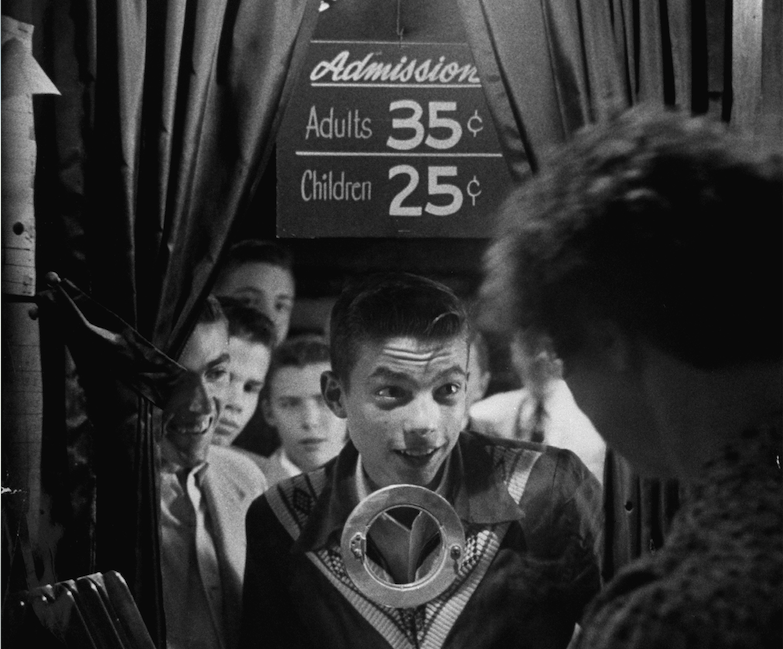
Could anyone pay you to set foot in a movie theater next week? AMC Theaters hasn't quite gone that far, but it will ask would-be ticket buyers for a measly $0.15 per ticket if they're willing to head out for (an old) movie night on August 20.
Today, per Variety, the theater chain announced it will reopen 100 of its locations mid-pandemic this month. And as a promotion to encourage fans to look the other way return despite the risk of COVID-19 spread, AMC will offer one day of tickets at 1920's prices—$0.15/each plus tax. The company started that year, but it will begin its post-COVID-19 existence with slightly less-old films like Empire Strikes Back, The Goonies, Back to the Future, and Inception.
If the recurring headlines about another Tenet delay don't give it away, 2020 has been a tough time for movie theaters. Not only have these spaces been closed for business since the spring, but both their near- and long-term futures look bleak. COVID-19 continues to spread, making indoor activities in enclosed spaces with others (like, say, seeing a film at a movie theater) quite unappealing. And the pandemic has also complicated Hollywood's ability to produce, meaning a dry period in the release pipeline seems inevitable at some point. In a summer filing with the Securities and Exchange Commission, AMC said it expected losses between $2.1 and $2.4 billion just in Q1 of 2020 alone.
So AMC needs some kind of revenue fast, even if it's just $0.15/ticket (and soon after, $5/ticket for select old movies). This won't be the chain's first attempt at reopening. AMC previously announced it would re-open in mid-July in a larger rollout of 450 theaters ahead of theatrical runs for Tenet and Disney's Mulan. That obviously didn't happen, as the virus impact increased in the US this summer. The former film has since been delayed indefinitely and may open overseas, while the latter will now go straight to Disney+.
For its proposed July reopening, AMC made headlines when it brought on Harvard professor Dr. Joseph Allen (an expert on the intersection of building design and health science) to advise the chain on what best practices could make its theater spaces safer. The company then made even more headlines when it initially said masks wouldn't be mandatory (against Dr. Allen's advice), reversing course promptly after public outcry.
For this August attempt, AMC currently touts its pandemic protocols right at the top of its website for would-be ticket buyers. Everyone must wear masks (which can be purchased for $1 on site in a pinch). Signage has been positioned to encourage social distancing. Theaters will be held to 30 percent or less capacity, with entire rows blocked toward that goal. Concessions transactions won't involve cash, and popcorn or fountain drinks won't involve refills. AMC employees must go through daily temperature checks, with individuals showing symptoms needing to self-quarantine and be symptom-free for at least 72 hours before returning to work. And the company has invested in additional cleaning, with HEPA Filter Vacuums hitting carpets nightly ("proven to trap 99.97 percent of airborne particles," the company claims) and electrostatic disinfectant sprayers being used on each theater between screenings (these sprays "maximize surface coverage by using negatively charged ions so that the disinfectant particles wrap around and cling to positively charged surfaces!").
But despite all the hyped health considerations, the risk/reward proposition for going to a theater to see films you can find through VOD options at home does not appear to be in AMC's favor. Look to the World Health Organization, for instance, which continues to advise people that the best way to minimize COVID-19 risk is to avoid the Three Cs: crowded places, close-contact settings, and confined or enclosed spaces.
Listing image by Yale Joel / Getty Images
reader comments
236